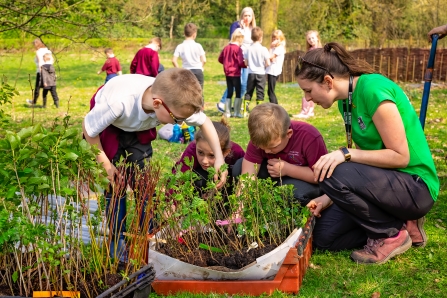The county’s largest nature conservation charity works with over 20,000 children each year through its people and community outreach programmes and sessions.
Meanwhile, over 200,000 people visit the Trust’s visitor centres, The Wolseley Centre, near Rugeley, and Westport Lake Visitor Centre, in Stoke-on-Trent.
The charity prides itself on working with individuals, groups, families and organisations to connect people to conservation and wildlife across the county.
Researchers at Leeds Beckett University analysed the social value of Wildlife Trusts’ nature conservation projects which offer outdoor volunteering opportunities and programmes that support people experiencing problems such as anxiety, stress or mild depression.



